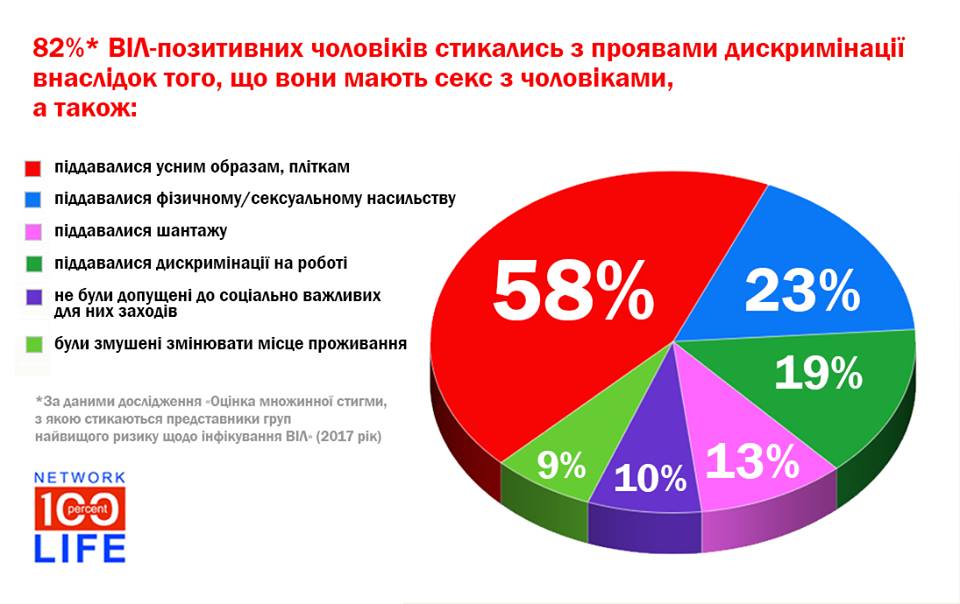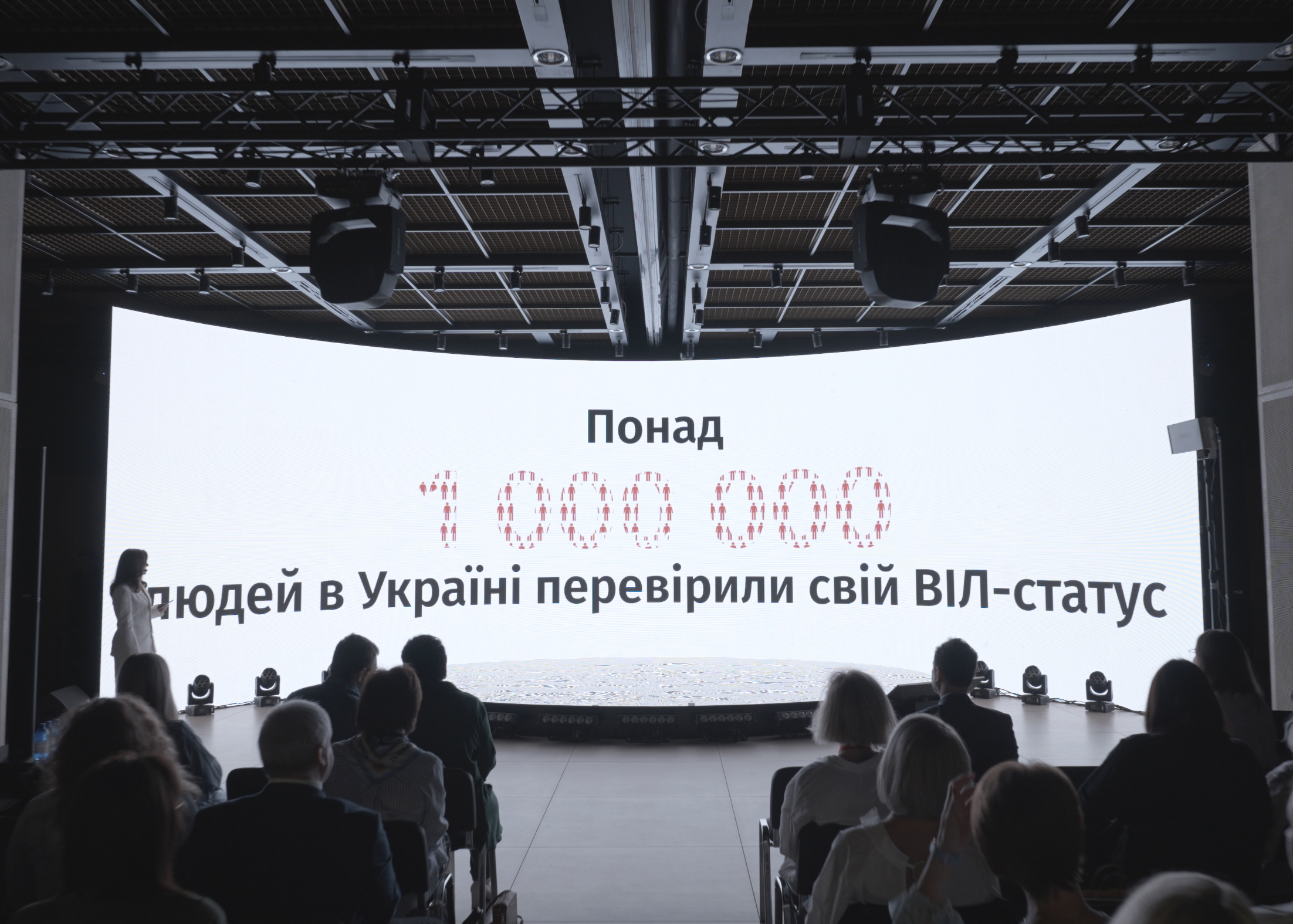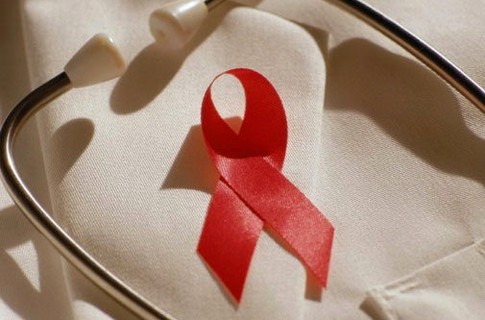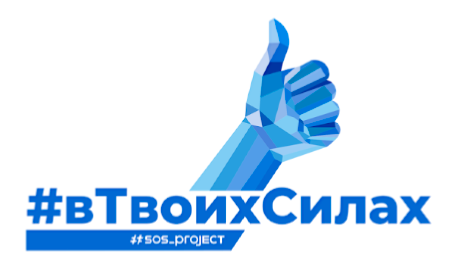8 out of 10 HIV + men who had sex with men reported discrimination
From June 9 till June 18, the week of KyivPride-2017 will be held under the slogan “The Country for All!” On June 18, the Pride Week will traditionally end with the Equality March of KyivPride.
The all-Ukrainian Network of PLWH has always advocated and continues advocating for equality and tolerance, as well as against any kind of discrimination: racial, gender, religious, and social. And what unites us all is the right to health for all.
This year the Network of PLWH, together with partners from HIV-service organizations, will join the general column of the Equality March with the slogan “Health for All!”.
“People living with HIV/AIDS often face a biased attitude (stigma) towards them and specific actions of other people that limit the rights and freedoms of PLWH (discrimination),” said Dmitry Sherembey, the Chairman of the Coordination Council of the All-Ukrainian Network of PLHIV. “At the same time, a significant number of PLHIV experience not only stigma associated with their HIV-positive status but also stigma and discrimination related to their affiliation with vulnerable to HIV infection groups. This issue especially concerns men, who have sex with men”.

According to the study “Evaluation of the multiple stigma experienced by representatives of high-risk groups of HIV infection” (2017), 82% of HIV-positive men face different types of discrimination from the surrounding people because they had sex with men, namely,
- 58% were subjected to oral insults and gossips;
- 23% were physically/sexually abused;
- 19% were subjected to blackmailing;
- 13% were discriminated at work (denial of employment, dismissal, deterioration of working conditions);
- 10% were not allowed to participate in socially important activities (for example, parties, visits to clubs, religious meetings);
- 9% were forced to change their place of residence.
The access of PLHIV to medical services is of particular relevance in the context of combating the HIV/AIDS epidemic. According to the study “The Indicator of Stigma Level of PLHIV – the Stigma Index” (2016), 13% of HIV-positive MSM were denied medical services for the last year (compared to 7% among PLHIV who do not belong to vulnerable groups). A significant percentage of medical personnel of health care facilities have a stigmatized attitude toward MSM.
The assessment of the level of HIV-related stigma and discrimination to PLHIV and representatives of high-risk groups, conducted among the staff of selected health care institutions in Ukraine within the RESPECT project (2015), demonstrates that 33% of health workers believed that men who have sex with men and HIV-positive persons deserved their disease more than other HIV-positive people; 34% believed that men who have sex with men do not have the right to receive high-quality services in their medical institutions.
For reference.
The study “Evaluation of the multiple stigma experienced by representatives of high-risk groups for HIV infection” was conducted in 2017 as a part of the RESPECT project “Reducing HIV-related Stigma and Discrimination for Most at Risk Population in Health Care Facilities in Ukraine”, financially supported by the United States Agency for International Development (USAID). The total sample size is 1340 respondents.
The study “The Indicator of Stigma Level of PLHIV – the Stigma Index” was conducted in 2016 as a part of the project “Investing for Impact against Tuberculosis and HIV Epidemic” with the support of the Global Fund to Fight AIDS, Tuberculosis and Malaria. The total sample size is 1500 respondents.
The study “Evaluation of the level of HIV-related stigma and discrimination among the staff of selected health care institutions of Ukraine to PLHIV and representatives of high-risk groups” was held in 2015 within the RESPECT project “Reducing HIV-related Stigma and Discrimination for Most at Risk Population in Health Care Facilities in Ukraine” with the financial support of the United States Agency for International Development (USAID). The total sample size is 2835 respondents.


